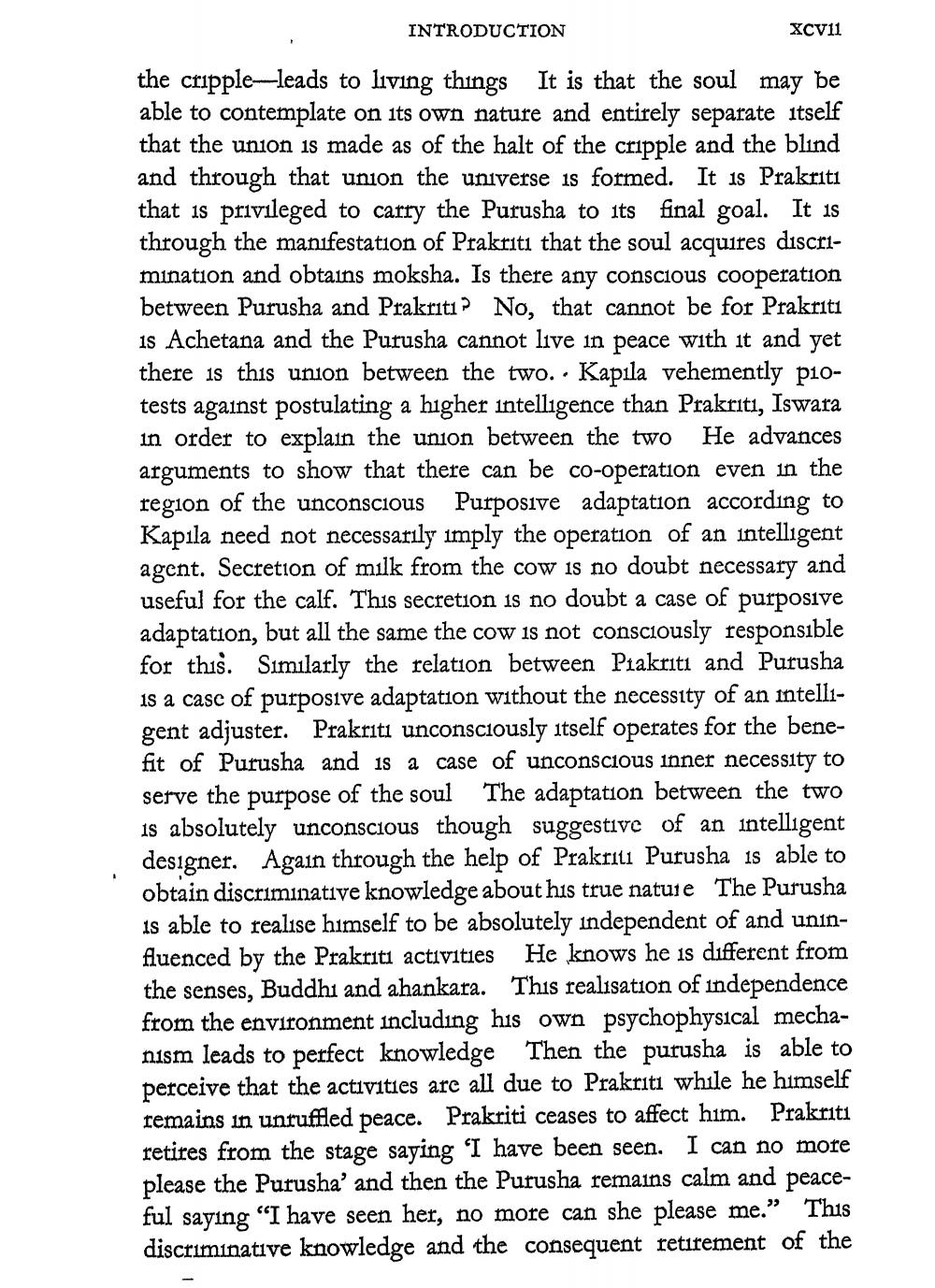________________
INTRODUCTION
XCV11
the cripple— leads to living things It is that the soul may be able to contemplate on its own nature and entirely separate itself that the union is made as of the halt of the cripple and the blind and through that union the universe is formed. It is Prakriti that is privileged to carry the Purusha to its final goal. It is through the manifestation of Prakriti that the soul acquires discrimination and obtains moksha. Is there any conscious cooperation between Purusha and Prakriti? No, that cannot be for Prakriti is Achetana and the Purusha cannot live in peace with it and yet there is this union between the two.Kapila vehemently p10tests against postulating a higher intelligence than Prakriti, Iswara in order to explain the union between the two He advances arguments to show that there can be co-operation even in the region of the unconscious Purposive adaptation according to Kapıla need not necessarily imply the operation of an intelligent agent. Secretion of milk from the cow is no doubt necessary and useful for the calf. This secretion is no doubt a case of purposive adaptation, but all the same the cow is not consciously responsible for this. Similarly the relation between Prakriti and Purusha is a case of purposive adaptation without the necessity of an intelligent adjuster. Prakriti unconsciously itself operates for the benefit of Purusha and is a case of unconscious inner necessity to serve the purpose of the soul The adaptation between the two is absolutely unconscious though suggestive of an intelligent designer. Again through the help of Prakriti Purusha is able to obtain discriminative knowledge about his true nature The Purusha is able to realise himself to be absolutely independent of and uninfluenced by the Prakriti activities He knows he is different from the senses, Buddhi and ahankara. This realisation of independence from the environment including his own psychophysical mechanism leads to perfect knowledge Then the purusha is able to perceive that the activities are all due to Prakriti while he himself remains in unruffled peace. Prakriti ceases to affect him. Prakriti retires from the stage saying 'I have been seen. I can no more please the Purusha' and then the Purusha remains calm and peaceful saying "I have seen her, no more can she please me.” This discriminative knowledge and the consequent retirement of the




